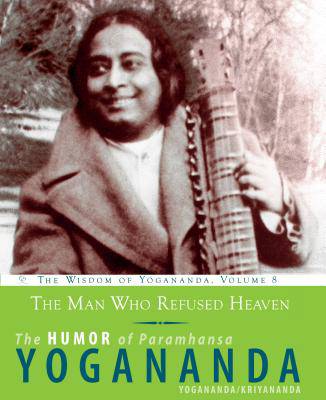
- Retrait gratuit dans votre magasin Club
- 7.000.000 titres dans notre catalogue
- Payer en toute sécurité
- Toujours un magasin près de chez vous
- Retrait gratuit dans votre magasin Club
- 7.000.0000 titres dans notre catalogue
- Payer en toute sécurité
- Toujours un magasin près de chez vous
16,95 €
+ 33 points
Description
Why is humor so deeply appreciated? Laughter is one of the great joys of life. Joy is fundamental to who we are. Yogananda translated the classic definition of God given by Swami Shankarananda, "Sat-chid-ananda," as, "Ever-existing, ever-conscious, ever-new joy." Yogananda added the concept of "new" to the ancient definition. Yogananda explained that God became His creation, which means that all of life exists, is conscious, and has the quality of joy innately within it. This is why human beings universally seek happiness. It is our nature to be happy, and the search for happiness motivates everyone. A master is one who has united his consciousness with Satchidananda, and so you see in the masters profound joy. Some share this joy outwardly through their personalities; others may be more serious outwardly, but great joy sparkles in their eyes and is felt in their presence. In Yogananda's magnificent poem, "Samadhi," he describes his experience in the highest state of consciousness, ending with the lines, Eternity and I, one united ray. A tiny bubble of laughter, I Am become the Sea of Mirth Itself. Yogananda's experience of life, his experience of the goal of all life, was filled with joy. He lived in joy always, and sought to awaken it in others. Though he could be intensely serious and deep as appropriate, he also could express the greatest joy, often in unexpected situations. The humor in this book arose spontaneously from Yogananda's deep joy. Sometimes he used humor to express an important spiritual principle. Sometimes he used it in training the disciples, to help them learn in a way that reasoned lectures could never achieve. Most of the humor in this book was taken from Yogananda's writings. Also included are experiences with the master that demonstrate his playful spirit. These were written by Swami Kriyananda, from his years of being trained personally by Yogananda, or from stories that were shared with him by other close disciples. The message of this book is both playful and serious. The serious message is that joy can be found within us always. We should look for it there and share it with others.
Spécifications
Parties prenantes
- Auteur(s) :
- Editeur:
Contenu
- Nombre de pages :
- 200
- Langue:
- Anglais
- Collection :
- Tome:
- n° 8
Caractéristiques
- EAN:
- 9781565893115
- Date de parution :
- 01-06-17
- Format:
- Livre broché
- Format numérique:
- Trade paperback (VS)
- Dimensions :
- 142 mm x 175 mm
- Poids :
- 136 g

Les avis
Nous publions uniquement les avis qui respectent les conditions requises. Consultez nos conditions pour les avis.






